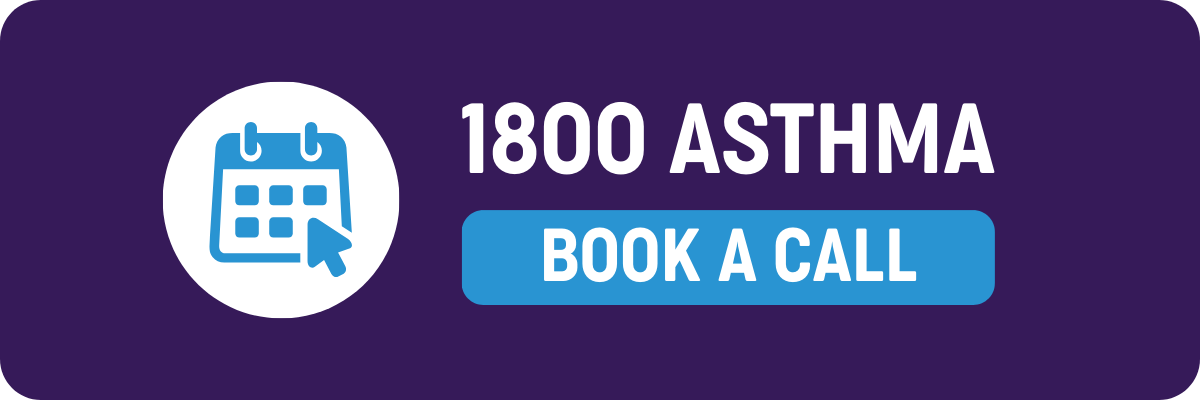Allergies
Asthma and allergies are closely linked. Many people with asthma have allergic asthma.
So, how do allergies affect asthma? There are two main ways:
- Allergies cause airway swelling: When you have an allergy, your body reacts to something that’s usually harmless, like pollen or dust. This reaction can make your airways swell up, which makes it harder to breathe. This swelling also contributes to airway hyperresponsiveness, which makes the airway more sensitive.
- Allergies can trigger asthma attacks: If you’re allergic to something and you breathe it in, it can set off an asthma attack. This means your airways tighten up even more, and you might start coughing, wheezing and feeling short of breath.
Knowing what you’re allergic to can help you manage your asthma. If you can avoid those things, you’ll be less likely to have asthma symptoms.
Allergy Tests and Your Asthma
Do I Need Allergy Tests?
No, probably not. Not everyone with asthma needs allergy tests. Simply knowing if common allergens like cats, dust or grass make you sneeze and wheeze gives your doctor good clues about possible allergies.
- Your doctor might suggest tests if:
- Knowing your allergies will help them plan your asthma care. For instance, if you have severe asthma you need to know if a monoclonal antibody may help.
- They think you have other allergies, like food allergies.
- They are trying to figure out why a baby is wheezing.
When to See a Specialist:
- If you have severe asthma, asthma that changes quickly or have had a bad allergic reaction (anaphylaxis), seeing an allergy specialist is important. They can do tests safely.
Managing Asthma and Allergies Together
If you have asthma and allergies, there are a few extra things you can do to keep them under control:
- Treating allergies: If you have a runny nose from allergies (hay fever or allergic rhinitis), treating that can help your asthma.
- Avoiding triggers: Try to stay away from things you’re allergic to, like dust or pets, if they make your asthma worse.
- Allergy Immunotherapy: In some cases, allergy desensitisation can help your body get used to allergens or become immune. Talk to your doctor to see if this is right for you.
Your doctor will help you figure out the best plan for your asthma and allergies.
Anaphylaxis
Anaphylaxis is the medical term used for the most severe form of allergic reaction. Anaphylaxis can be life-threatening, and having asthma can make it even more dangerous. If you have asthma and food allergies, you might be at a higher risk of having anaphylaxis. Because of this, it’s extra important to keep your asthma under control. If you’re at risk of anaphylaxis, good asthma management is key.
An anaphylactic reaction usually happens less than 20 minutes after being exposed to a trigger. It should always be treated as a medical emergency.

People who have a food allergy and have a history of eczema and/or asthma are at a higher risk of anaphylaxis. You can only be diagnosed with anaphylaxis after you have had a reaction.
Early signs of a general allergic reaction are symptoms such as tingling in the mouth, hives or welts (red raised bumps on the skin), swelling of the face, lips or eyes and vomiting or abdominal pain. Anaphylaxis is when these symptoms then progress into a severe allergic reaction, with difficult/noisy breathing, swelling of the tongue and throat, difficulty talking, cough and/or a hoarse voice, pale skin, floppiness (particularly in young children) and loss of consciousness or collapse.
Anaphylaxis can occur after a person is exposed to an allergen, or trigger. The allergen is something the person’s immune system treats as a foreign object and reacts against. Ninety per cent of allergic reactions are caused by foods such as peanuts, tree nuts, egg, milk, sesame, seafood and soy, but insect venom or medicines can also be triggers.
Talk to your doctor and if necessary, see an allergy specialist to help identify your trigger/s so you can avoid them. Your doctor should help you develop an anaphylaxis action plan, explaining how to recognise an anaphylactic reaction, what to do, what medicines to use (such as an adrenaline injector) and when to call an ambulance.
The doctor will also explain when to return for regular follow up visits. It is also important that people around you, for example at work or at school, know about anaphylaxis and how to help if you have a reaction.
If someone has an anaphylactic reaction, they will need an urgent injection of adrenaline. This is most commonly given through an automatic injector. Anyone who is diagnosed with anaphylaxis should carry one of these injectors with them, or have it very close by. If you have one of these, make sure you and your family, friends or work colleagues know how to use it in a medical emergency.
For trustworthy information about allergy and anaphylaxis in Australia, we recommend ASCIA – The Australasian Society of Clinical Immunology and Allergy
Asthma Educators can answer your asthma questions
Book a FREE phone call at a time that works for you or call us direct on 1800ASTHMA (1800 278 462).





 1800 278 462
1800 278 462
